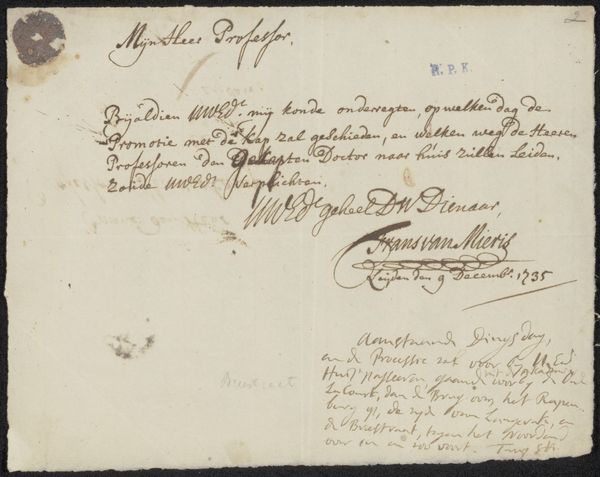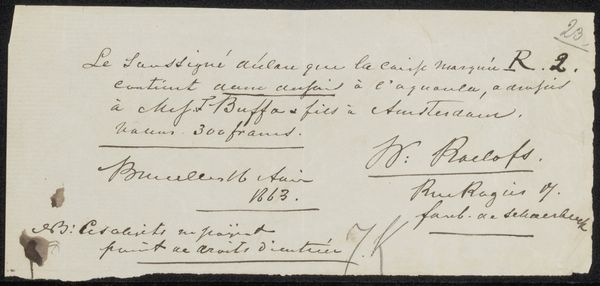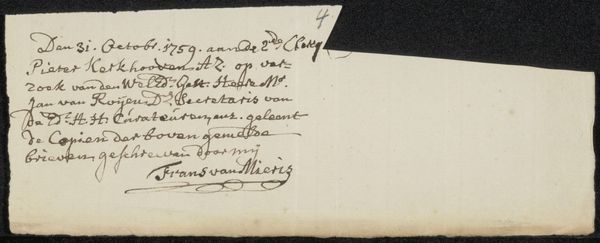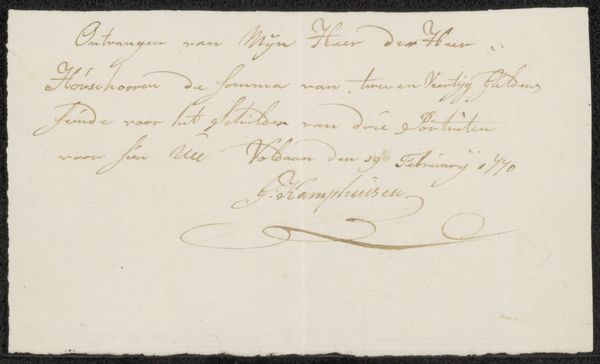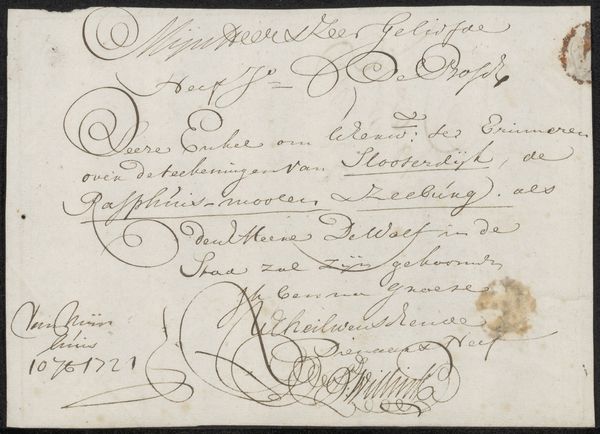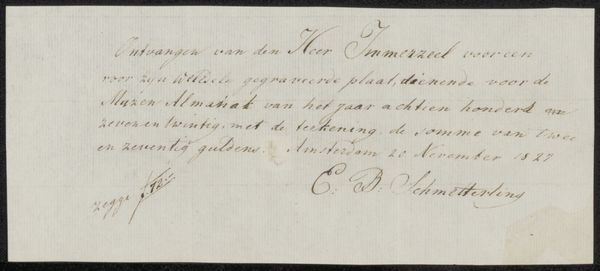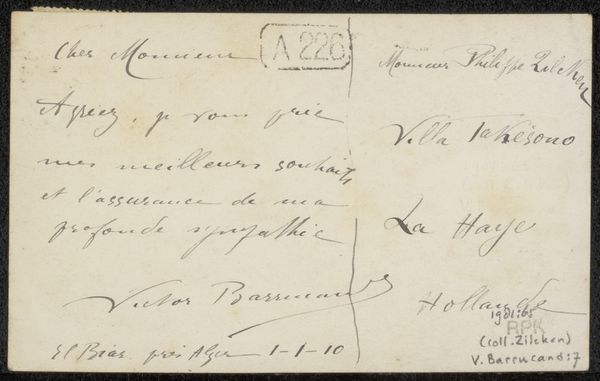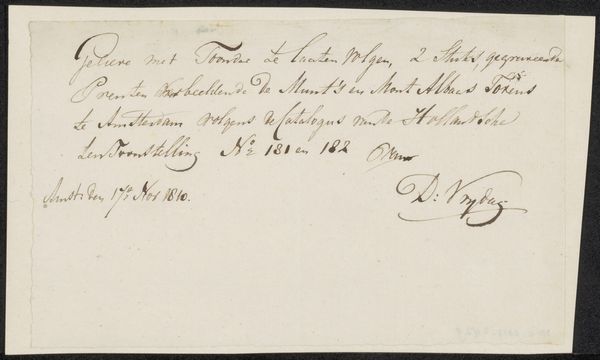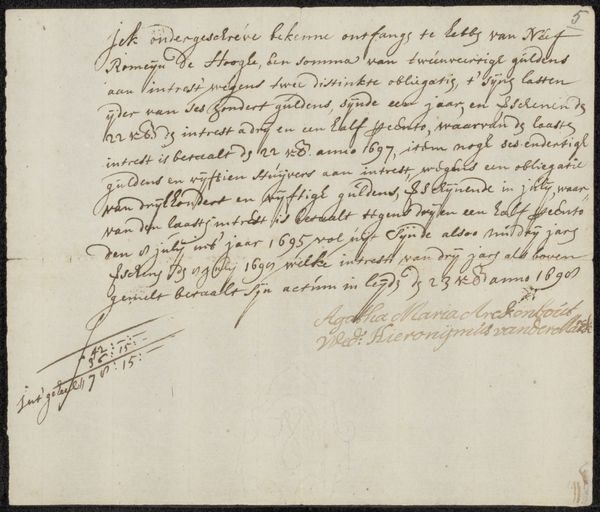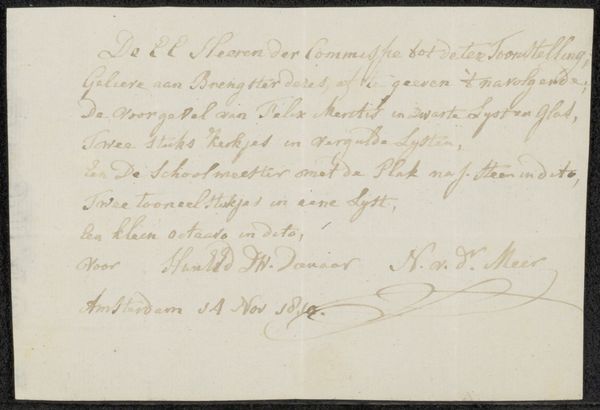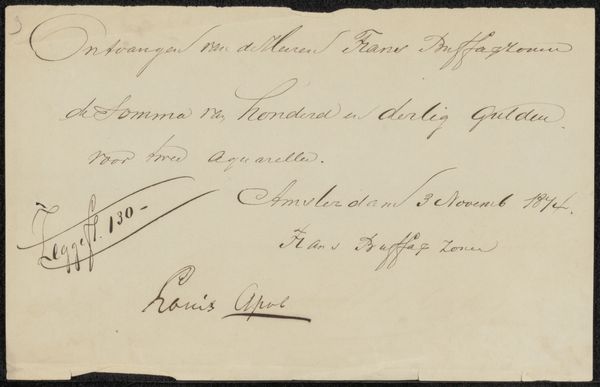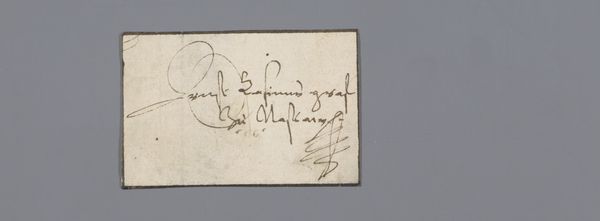
drawing, paper, ink
#
drawing
#
hand-lettering
#
incomplete sketchy
#
hand drawn type
#
hand lettering
#
paper
#
personal sketchbook
#
ink
#
hand-drawn typeface
#
fading type
#
romanticism
#
sketchbook drawing
#
sketchbook art
#
small lettering
Copyright: Rijks Museum: Open Domain
This 'Receipt for Anonymous', was made by Dionys van Nijmegen in Rotterdam, in 1764, with paper and ink. These are, of course, the basic materials of commerce. The document’s appearance is influenced by the texture of the paper and the flow of the ink. In this period, paper was often handmade from rags, giving it a unique texture and character. And the formulation of the ink itself mattered greatly, as it was prone to fading or running. The receipt’s creation involved skills of penmanship that were highly valued in trade and governance. The elegant script reflects a tradition of calligraphy that was crucial for official records. The document is a product of burgeoning capitalism, where meticulous record-keeping was vital for commerce and trust. It speaks to the labor involved in managing finances and the social context of trade. Even a humble receipt can be understood as a crafted object that reflects a moment in economic history.
Comments
No comments
Be the first to comment and join the conversation on the ultimate creative platform.
